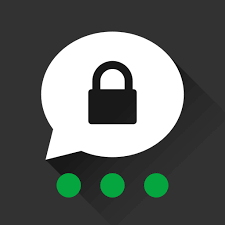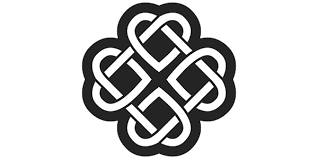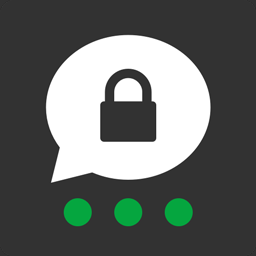The Best Secure Communication Apps for Legal Professionals on Mobile Devices in 2024
• public
In today’s digital age, secure communication is paramount for legal professionals who must protect client confidentiality and maintain high standards of operational security. With the increasing prevalence of mobile communication, finding the right secure messaging app is critical. This article explores the best secure communication apps for iOS and Android, each offering unique features tailored to the needs of the legal profession. From robust end-to-end encryption to decentralised networks and integration with Tor, these apps provide the tools necessary to safeguard sensitive legal information. Whether you are using an iOS or Android device, the following apps will help you ensure your communications remain private and secure.
The Importance of Hiding Message Content in Notifications for Legal Professionals
Hiding message content in notifications is crucial for maintaining the integrity of secure communications, especially for legal professionals handling sensitive information. Although end-to-end encryption ensures that message contents are protected during transmission, this security can be compromised if the content is displayed in notifications. Notification tokens may potentially be exploited, exposing message previews on the lock screen. Law enforcement agencies have leveraged this vulnerability remotely to access sensitive information without needing to decrypt the actual message data. This method bypasses the encryption protections, offering access to potentially confidential and private information. To mitigate this risk, it is essential for legal professionals to configure messaging apps to hide message content in notifications, ensuring that sensitive communications remain secure and private even when devices are locked or unattended.
Secure Messaging Apps for IOS

1. Signal: Top Security for Legal Professionals ⭐⭐⭐⭐⭐
Signal is widely regarded as the most secure messaging app for legal professionals, offering robust end-to-end encryption for confidential communications, including text, voice, and video calls. As an open-source app, Signal ensures transparency and top-tier security, making it ideal for handling sensitive legal information. Its commitment to not storing user data enhances client confidentiality and operational security. However, some legal professionals may find Signal’s reliance on phone numbers for registration a potential concern. While feature-rich, the app might lack certain customisation options needed for legal practice.

2. Threema: High-Level Security with Swiss Privacy ⭐⭐⭐⭐
Threema is a secure messaging app perfect for legal professionals, providing high-level security with end-to-end encryption and no requirement for a phone number for registration, thus ensuring greater operational security. Adhering to strict Swiss privacy laws, Threema stores minimal user data, making it ideal for sensitive legal communications. The app, which is used by the Swiss Army, also offers contact verification options to enhance security. However, as a paid app, Threema might deter users looking for free alternatives. Its smaller user base could also limit its network effect in the legal community.

3. SimpleX: Metadata Privacy and Tor Integration ⭐⭐⭐⭐
SimpleX offers a unique approach to secure communication by ensuring both metadata privacy and end-to-end encryption. For legal professionals, SimpleX can integrate with Tor to provide an additional layer of client security. Using Tor, SimpleX routes messages through a network of volunteer-operated servers, obscuring the origin and destination of the communications. This integration helps protect the identities and locations of the users, ensuring that legal communications remain confidential and secure. SimpleX’s use of Tor is particularly beneficial for legal professionals who need to safeguard sensitive client information and maintain high standards of operational security.

4. Session: Ultimate Privacy for Legal Communications ⭐⭐⭐
Session is designed to offer ultimate privacy for legal professionals with end-to-end encryption and no reliance on phone numbers or emails for registration. Its decentralised network makes it difficult to trace communications, ensuring client confidentiality. However, Session’s performance can sometimes be slower compared to other messaging apps due to its onion routing method. Additionally, its relatively new market presence means fewer users and less extensive feature sets compared to more established apps.

5. Element: Versatile and Secure Decentralized Communication ⭐⭐⭐
Matrix is an open-source protocol supporting secure, decentralized communication, ideal for legal professionals. Its versatility allows integration into various apps and platforms, providing end-to-end encryption for sensitive legal messages. Matrix’s federated nature ensures no single point of failure, enhancing operational security. However, the setup and user experience can be complex for non-technical users, and interoperability issues might arise between different Matrix clients. Additionally, the level of security can vary depending on the client implementation. It is, therefore, recommended to use the client Element. This Matrix-based client, emphasises privacy and security through end-to-end encryption and Secure Backup, which protects encryption keys and ensures data accessibility across devices. Users can set up Secure Backup with a security phrase or key, while verified sessions ensure only legitimate devices can access the account. Element supports self-hosting to maintain data control and prevent unauthorised access, making it a secure choice for real-time, interoperable communication across platforms.
Secure Messaging Apps for Android

1. Signal: Leading Security for Android Users ⭐⭐⭐⭐⭐
Signal is a top choice for legal professionals using Android due to its robust end-to-end encryption, open-source code, and comprehensive security features. It offers secure messaging, voice, and video calls, with minimal data retention policies, making it perfect for confidential legal communications. However, Signal’s requirement for a phone number may raise concerns for legal professionals seeking complete operational security. The app is user-friendly but might lack some customisation and features needed for legal practice.

2. Molly: Enhanced Signal App Security for Legal Communications⭐⭐⭐⭐
Molly, a fork of Signal, offers the same high level of security and end-to-end encryption, with additional privacy features legal professionals might find useful, such as encrypted backups and a passphrase lock, ensuring sensitive legal information is secure. However, as a community-driven project, Molly’s updates may not be as frequent or timely as Signal’s. Users might also encounter compatibility issues with Signal users due to differences in feature sets and app versions.

3. Briar: Secure and Offline Resilient Communication ⭐⭐⭐⭐
Briar is a secure messaging app designed exclusively for Android. Briar stands out for legal professionals needing secure communication without internet access, using Bluetooth, Wi-Fi, or mesh networks. This resilience is crucial for legal practitioners in restricted environments. With internet access, Briar can also use Tor to enhance its security features by routing messages through the Tor network. This integration helps obscure the user’s location and communication metadata, ensuring that sensitive legal discussions remain confidential and protected from surveillance. By leveraging Tor, Briar provides a robust platform for secure and anonymous communication, essential for maintaining client confidentiality and operational security in high-risk scenarios. However, being Android-only can limit its user base, potentially restricting communication with clients or colleagues using different platforms.

4. Cwtch: Decentralized and Private Messaging ⭐⭐⭐⭐
Cwtch is another Android-exclusive secure messaging app tailored for legal professionals, focusing on decentralized communication and metadata privacy. By integrating Tor, Cwtch routes messages through the onion network, which conceals the sender’s and recipient’s identities and their physical locations. This feature is crucial for legal practitioners needing to ensure that their communications cannot be traced back to them or their clients. While its Android-only availability may limit its user base, the enhanced security provided by Tor makes Cwtch a reliable choice for legal professionals handling sensitive information and requiring strong operational security measures.

5. Threema Libre: Open-Source Privacy for Legal Professionals ⭐⭐⭐⭐
Threema Libre, the open-source version of Threema, provides strong end-to-end encryption and privacy features without requiring a phone number for registration. Adhering to strict privacy standards, Threema Libre stores minimal user data, making it ideal for legal professionals. While its security credentials are robust, Threema Libre shares the drawback of being a paid service, which may deter some users (However they do accept bitcoin). Additionally, its smaller user base might limit the number of contacts available within the legal community.
Ensuring Confidential and Secure Mobile Communication for Legal Professionals
Choosing the right secure messaging app is essential for legal professionals committed to maintaining client confidentiality and operational security. Signal, Threema, SimpleX, Session, and Matrix offer robust security features for iOS users, while Signal, Molly, Briar, Cwtch, and Threema Libre provide similar protections for Android users. Each app has its strengths and potential concerns, but they all share a common goal: to provide a secure platform for sensitive legal communications. By leveraging advanced encryption, decentralised networks, and integration with technologies like Tor, these apps help legal professionals navigate the complexities of digital security, ensuring that their communications remain protected from prying eyes. As the landscape of secure communication continues to evolve, staying informed about the best tools available is crucial for safeguarding client information and maintaining the integrity of legal practice.

